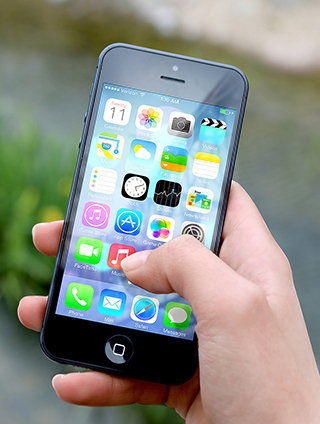 Researchers at Portland State University have teamed up with Oakland, California-based dfusion, a health tech startup focused on behavior change research, to develop a mobile app for HIV prevention among transgender women.
Researchers at Portland State University have teamed up with Oakland, California-based dfusion, a health tech startup focused on behavior change research, to develop a mobile app for HIV prevention among transgender women.
The app, which will be called Transwomen Connected, will also be designed as a resource for transgender women to speak with a network of supportive peers. The project is funded by a recently awarded NIH grant.
The project is one that Charles Klein, assistant professor in anthropology at Portland State University, and Tamara Kuhn, VP and research scientists at dfusion, said they have been looking to pursue a project like Transwomen Connected for nearly a decade. While before it was impossible for the pair to receive grant funding, the National Institute on Minority Health and Health Disparities’ recent designation of sexual minorities as a minority health population now allows the pair and their organizations to move forward with a project that they said is long overdue.
“One thing we really noticed in HIV is that there were, and still are, very few programs specifically designed with transgender folks in mind, specifically transgender women,” Klein told MobiHealthNews. “So what would the providers who work with transgender women do? They would adapt programs that were designed for women or MSM [men who have sex with men] for transgender women. The health department would help them do that, but we always realized that’s not quite right, that’s not the best way to go.”
Klein and Kuhn stressed that a having a flexible but inclusive program is of added importance to the transgender population, who already deal with issues of ostracism in their day to day lives. That’s not to say anything of the well-documented healthcare risks threatening transgender women.
“I think what’s unique about this is the idea of positioning it with a sense of connectivity and strength and resilience, and also positioning sexual health risk within this broader context,” Kuhn told MobiHealthNews. “We focused on HIV, but [transgender women’s] health outcomes across the spectrum are much, much worse, even compared to MSM.”
Because their app is intended to be evidence-based, Klein and Kuhn explained that their development process will involve frequent research and testing of the app’s performance. They will present a prototype to the NIH at the end of the project’s first year, upon which time their teams will receive additional grant funding to refine and pilot the platform. The pair estimated that the full public release will likely take two-and-a-half years.
The final product, they hope, will offer effective HIV and sexual health messaging specifically tailored to transgender women, while facilitating anonymous communities where peers can offer emotional support, recommend socially accepting health service providers, and otherwise find social acceptance.
“What better way to do this than through a mobile technology, because everyone, including transgender women, uses their telephone for so many things: health, information, meeting people, connecting,” Klein said. “With such technology, we can reach folks, transgender women, in various regions, in various places in a much easier way than face-to-face.”
















